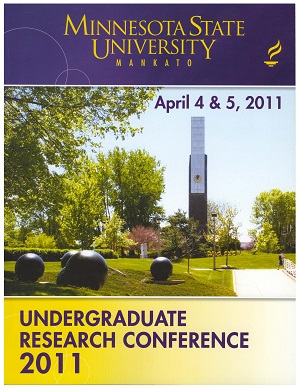Squaw Valley 1960: Sport, Politics, and Nationalism
Location
CSU 201
Start Date
5-4-2011 9:00 AM
End Date
5-4-2011 10:30 AM
Student's Major
History
Student's College
Social and Behavioral Sciences
Mentor's Name
Matthew Loayza
Mentor's Department
History
Mentor's College
Social and Behavioral Sciences
Description
My research examined American attitudes towards the Soviet Union and the Eastern Bloc at the 1960, Squaw Valley Winter Olympics. This includes the press‘ prevailing attitude in its depictions of American and western European athletes, versus those of Eastern European athletes. Parallels between these and the 1980 Lake Placid Winter Games are of especial import; a Cold War era Olympics, on American soil, pitting American capitalism against Soviet communism, where the underdog Americans score an ice hockey victory over the Soviets en route to a gold medal. In 1980 the ice hockey competition was highly politicized, and historians have devoted increasing attention to how nation states have used sport as a means of justifying national ideologies. Yet in 1960, the same result met little fanfare, and no attention from historians. My research also examined the American government‘s attitudes towards Soviet Russia to help explain this disconnect. This research is based on relevant secondary monographs and articles which explore the rise of
international, state-driven sport beginning with the modern Olympics; sport and international politics in the 20th Century, especially as it pertains to competition between and among capitalism, communism, and fascism; the importance of pageantry and glorification to competing and hosting Olympic nations; the 1980 Olympic hockey competition, and nationalistic bias in Olympic figure skating judging. It is also based on examination of government documents, the Final Report of the VIII Winter Olympic Games, and a variety of contemporary newspapers and mass-circulation magazines such as Sports Illustrated and Time.
Squaw Valley 1960: Sport, Politics, and Nationalism
CSU 201
My research examined American attitudes towards the Soviet Union and the Eastern Bloc at the 1960, Squaw Valley Winter Olympics. This includes the press‘ prevailing attitude in its depictions of American and western European athletes, versus those of Eastern European athletes. Parallels between these and the 1980 Lake Placid Winter Games are of especial import; a Cold War era Olympics, on American soil, pitting American capitalism against Soviet communism, where the underdog Americans score an ice hockey victory over the Soviets en route to a gold medal. In 1980 the ice hockey competition was highly politicized, and historians have devoted increasing attention to how nation states have used sport as a means of justifying national ideologies. Yet in 1960, the same result met little fanfare, and no attention from historians. My research also examined the American government‘s attitudes towards Soviet Russia to help explain this disconnect. This research is based on relevant secondary monographs and articles which explore the rise of
international, state-driven sport beginning with the modern Olympics; sport and international politics in the 20th Century, especially as it pertains to competition between and among capitalism, communism, and fascism; the importance of pageantry and glorification to competing and hosting Olympic nations; the 1980 Olympic hockey competition, and nationalistic bias in Olympic figure skating judging. It is also based on examination of government documents, the Final Report of the VIII Winter Olympic Games, and a variety of contemporary newspapers and mass-circulation magazines such as Sports Illustrated and Time.
Recommended Citation
Schiller, Joe. "Squaw Valley 1960: Sport, Politics, and Nationalism." Undergraduate Research Symposium, Mankato, MN, April 5, 2011.
https://cornerstone.lib.mnsu.edu/urs/2011/oral-session-10/4




